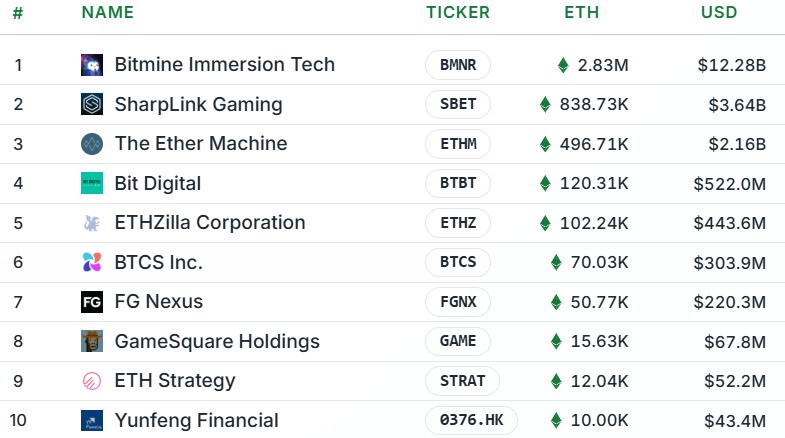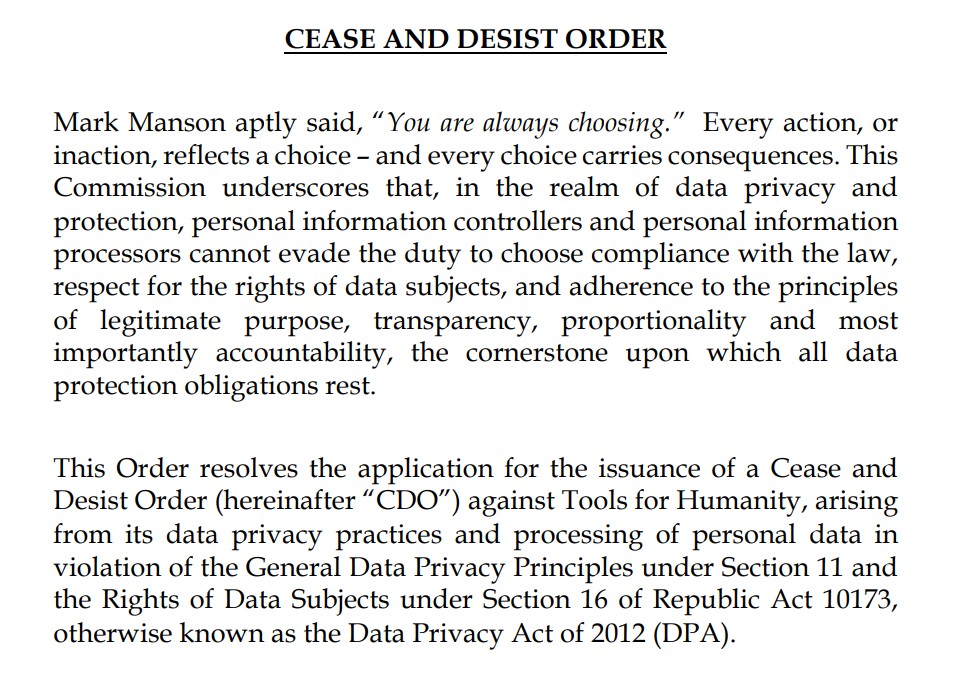Alibaba founder’s Ethereum push, whales are 91% of Korean market: Asia Express
Jack Ma’s fintech network deepens ETH push
Anthea Holding Limited, a Bermuda-based crypto insurance firm, has raised $22 million in Series A financing led by Yunfeng Financial Group, a Hong Kong-listed fintech company co-founded by Alibaba founder Jack Ma.
Anthea said the new capital will fund the launch of its first Ethereum-based life insurance product, alongside expansion into the Asian market.
The investment comes just over a month after Yunfeng Financial purchased 10,000 ETH (about $44 million), which serves as a strategic reserve for real-world asset tokenization and DeFi-linked insurance applications.

Yunfeng’s deepening engagement with Ethereum reflects a broader evolution in the crypto stance of Ma’s financial network. Ma called Bitcoin a bubble in 2018, but consistently championed blockchain technology.
After Ma’s high-profile fallout with Chinese regulators and the halted Ant Group IPO in 2020, his public presence diminished. But recently, his offshore investment vehicles have become increasingly active in regulated digital asset markets beyond mainland China.
Japan’s finance titans are turning to crypto
Two of Japan’s most influential financial powerhouses are deepening their push into cryptocurrency through major announcements made over the past week.
The first came from Nomura Holdings, part of Nomura Group, Japan’s largest investment banking and brokerage conglomerate. Its Switzerland-based digital asset arm, Laser Digital, said it is in pre-consultation talks with Japan’s Financial Services Agency (FSA) to apply for a license to serve institutional crypto investors. A joint Nomura–Laser Digital survey in June found that 54% of investment managers in Japan plan to gain crypto exposure within the next three years.
The second came from PayPay, the mobile payment platform co-founded by SoftBank Group, Japan’s tech and investment giant. PayPay announced on Thursday that it had acquired a 40% stake in Binance Japan, enabling fiat-to-crypto onramps that allow Binance users to purchase digital assets directly through PayPay. The platform, which applied for a US listing in August, has more than 60 million users domestically.
Read also
Japan is one of the world’s earliest crypto markets and was home to Mt. Gox, once the largest cryptocurrency exchange globally. The 2014 Mt. Gox hack prompted the FSA to take a stricter stance on digital assets, but it also paved the way for early regulation. Japan introduced its Payment Services Act (PSA) in 2017, establishing a licensing framework for exchanges, and later became the first major economy to implement stablecoin rules through amendments to the PSA.

In recent months, Japan’s crypto narrative has regained momentum, with the JPYC stablecoin drawing global attention and major financial institutions formalizing their entry into the sector. Policymakers have also proposed reducing the crypto tax rate from 55% to a flat 20%.
Adding to the shifting landscape, Sanae Takaichi won the Oct. 4 election to become Japan’s new prime minister. While she has yet to outline her stance on digital assets, her leadership is widely seen as a potential boost for the country’s evolving crypto economy.
South Korean whales represent over 90% of the local market

Data released to the media by lawmaker Lee Hunseung, citing figures from the Financial Supervisory Service, showed that the top 10% of cryptocurrency investors accounted for 6.55 trillion won (approximately $4.7 trillion) in trading volume across the nation’s five largest exchanges, representing 91.2% of all domestic transactions over the past 18 months.
When narrowing the scope to Bitcoin, Ethereum, and XRP, the trading share of the top 10% surged to 95%. Exchange-level data showed similar patterns, with the top 10% accounting for 91.2% of trading on Upbit, 96% on Bithumb and nearly 99% on Gopax.
The findings follow an earlier 2024 report from lawmaker Ahn Do-gul, which focused on crypto asset ownership rather than trading volume. That analysis of 7.7 million active accounts across Upbit and Bithumb showed that the top 1% of investors controlled about 70% of total crypto holdings.
Ahn’s report also revealed that high-value accounts exceeding 1 billion won were primarily held by middle-aged investors in their 40s and 50s, with an average balance of 9.45 billion won. By contrast, 92% of accounts held less than 10 million won. Ahn suggested that if the government’s 20% crypto capital gains tax — currently postponed until 2027 — were implemented, it could generate up to 1 trillion won in annual tax revenue.
Read also
The Philippines orders World App to halt data processing
The National Privacy Commission (NPC) has ordered Tools for Humanity (TFH), the developer of World App and the Orb biometric device, to cease and desist from processing personal information in the Philippines.

The regulator found that World App’s biometric data collection practices violated local privacy laws, citing invalid consent, excessive collection of retinal and iris scans, and risks of identity theft or cloning. The order followed complaints that TFH had gathered sensitive data during a cybersecurity and financial literacy event earlier this year.
Also read: Worldcoin’s less ‘dystopian,’ more cypherpunk rival — Billions Network
TFH countered that it does not collect names or addresses and that the Orb only converts eye images into encrypted “iris codes” stored locally on user devices. The NPC, however, ruled that the activity still posed potential harm to individuals given the sensitivity of biometric information.
World App is part of Worldcoin, an identity-focused crypto project co-founded by OpenAI’s Sam Altman. The project has faced similar regulatory actions globally, including a cease-operation order in Hong Kong and a fine in South Korea for violating privacy laws.
Subscribe
The most engaging reads in blockchain. Delivered once a
week.


Yohan Yun
Yohan Yun is a multimedia journalist covering blockchain since 2017. He has contributed to crypto media outlet Forkast as an editor and has covered Asian tech stories as an assistant reporter for Bloomberg BNA and Forbes. He spends his free time cooking, and experimenting with new recipes.
Read also
Sam Bankman-Fried convicted, PayPal faces SEC subpoena, and other news: Hodler’s Digest, Oct. 19 – Nov. 4
Sam Bankman-Fried is found guilty of fraud, other crimes; PayPal receives subpoena from the U.S. SEC, and Invesco Galaxy’s spot Bitcoin ETF joins DTCC website.
Thanks a trillion Bitcoin, Binance Coin goes parabolic, NFT mania: Hodler’s Digest, Feb. 14–20
The best (and worst) quotes, adoption and regulation highlights, leading coins, predictions and much more — one week on Cointelegraph in one link!






